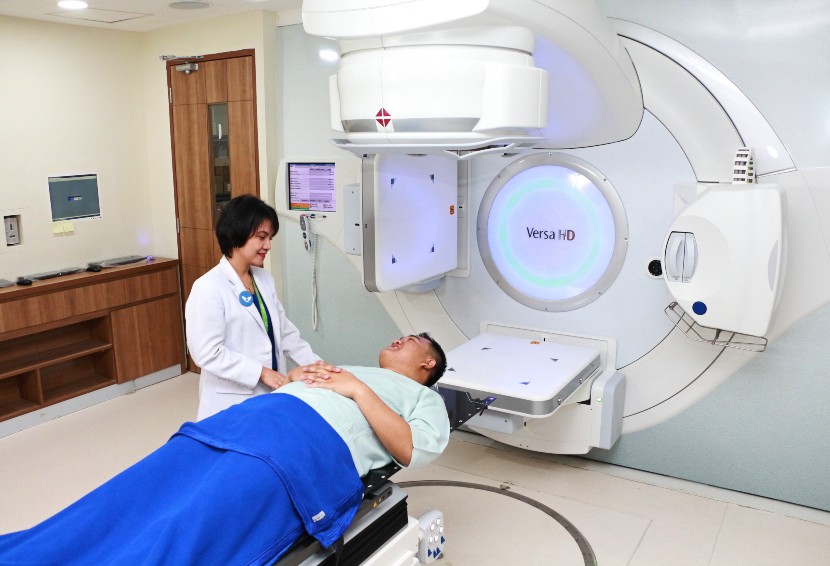People who look healthy and fit every day do not necessarily mean they are free from the risk of disease. There are a number of silent killer diseases that may attack and be fatal without any obvious symptoms or signs beforehand. That is why people are advised to undergo medical check-ups regularly. The question is when is it necessary to have a medical check-up?
What is a Medical Check-Up?
Medical check-up is a term that refers to a series of thorough medical examinations with various tools and tests to determine a person’s health condition. From this examination, the doctor can obtain information about the indication of health problems of the patient. The results of the medical check-up can provide clues about potential diseases that may develop.
If the medical check-up finds these indications, the doctor can take treatment measures earlier before the disease develops more severely, making treatment more difficult. In this medical examination, the doctor will hold a question-and-answer session with the patient to analyze health-related complaints and to examine the patient’s with or without tools.
Medical check-up also functions as a screening tool in certain contexts. For example, for prospective new employees in a company. The company may require potential employees to undergo a medical examination to find out any health issues. If it turns out that the prospective employees have serious illness, it is likely that they will not be able to get the job as it could affect their productivity.
When Is a Medical Examination Necessary and Why?
Medical check-up works for early detection and prevention of disease. Therefore, when it is necessary to undergo a medical examination depends on the risk factors of each person. Risk factors include age, habits, sex, diet, family history, and environment.
In 2012, the American Board of Internal Medicine Foundation launched the Choosing Wisely campaign. The goal of the campaign is to encourage doctors and patients to choose medical tests that are supported by evidence, not duplicate or other procedures that have been done, harmless, and really needed.
As part of the campaign, it is not always relevant in some cases to carry out routine medical check-ups as a means of prevention and early detection. Many diseases, such as breast cancer, appendicitis, rheumatoid arthritis, and bacterial pneumonia, are better controlled and treated if detected early. But there are also diseases for which there is no evidence that early detection would help the treatment effectively, such as leukemia, sarcoidosis, osteoarthritis, influenza and many other diseases caused by viral infections.
Nevertheless, almost all agree that routine check-ups are essential for older people. This is because the functioning of body systems deteriorates with age. Depending on their condition, the elderly should consult a doctor about when they need to undergo medical check-ups.
Tips for the Required Examination and the Frequency
Generally, older people are advised to undergo medical check-ups every 1 to 2 years if they have certain risk factors. For instance, older people with normal blood pressure are advised to have tests every 2 years. Meanwhile, if the blood pressure is often high, the test should be done at least once a year.
Examples of several conditions and the medical check-ups frequency:
- Teeth every 6 to 12 months
- Cervical cancer every 5 months
- Heart disease every 2 years
- Type 2 diabetes every 3 years
- Breast cancer at least every 2 years, more often when there is a family history of breast cancer
- Vision and hearing problems every 12 months
To find out if you need a medical examination and how often to undergo a thorough medical check-up, it is best to visit a doctor for a consultation. Your doctor will make recommendations after assessing your risk factors.
Physical Examination
Physical examination is an indispensable part of medical check-up. In this examination, the doctor will check the vital signs in the body, such as weight, blood pressure, breath rate, and heart rate. The doctor will also examine the state of the eyes, nose, ears, mouth, hair, skin, and other external organs visually or using tools.
If a patient has certain risk factors, the doctor will focus on them. For instance, if the patient comes from a family who has a history of heart disease, then the doctor will focus the examination on vital signs related to the heart. This examination can also be an opportunity to discuss future prevention measures with the doctor.
Laboratory Examination and Scan/Photo
Patients may be asked to undergo laboratory tests and scans/photos to check their internal organs to complete the results of the physical examination. These include complete blood counts, urine tests, and X-rays. From the results of a complete blood count, for example, the doctor can see the indications of problems in the kidneys, liver, and immune system. In this test, a sample of the patient’s blood will be taken for examination in the laboratory.
The scan/photo examination uses equipment to get a clearer picture of the condition of the internal organs. Examples include computed tomography (CT) scans, ultrasound, and magnetic resonance imaging (MRI). These examinations are generally painless, relatively safe, and without surgical procedures.
Health Check-up at Home vs in Hospitals vs in Laboratories
Medical check-ups are usually carried out in a hospital or laboratory. But sometimes patients can only access health check-up services at home because of their condition. Therefore, medical check-ups at home generally only focus on examining patients related to their conditions with limited-service options and equipment.
Medical check-ups in hospitals are generally performed at the request of the doctor after a consultation. For instance, a patient comes with certain health complaints. To confirm the diagnosis, the doctor may ask the patient to undergo a medical check-up. The results will serve as material for deciding the next step.
Meanwhile, medical check-ups in laboratories are usually carried to people who want to know their state of health even if there is no symptom. However, it is also possible that a patient undergoes a medical examination in the laboratory on the recommendation of a doctor. Hospitals and independent laboratories provide services with more comprehensive medical equipment and personnel compared to medical check-ups at home.



